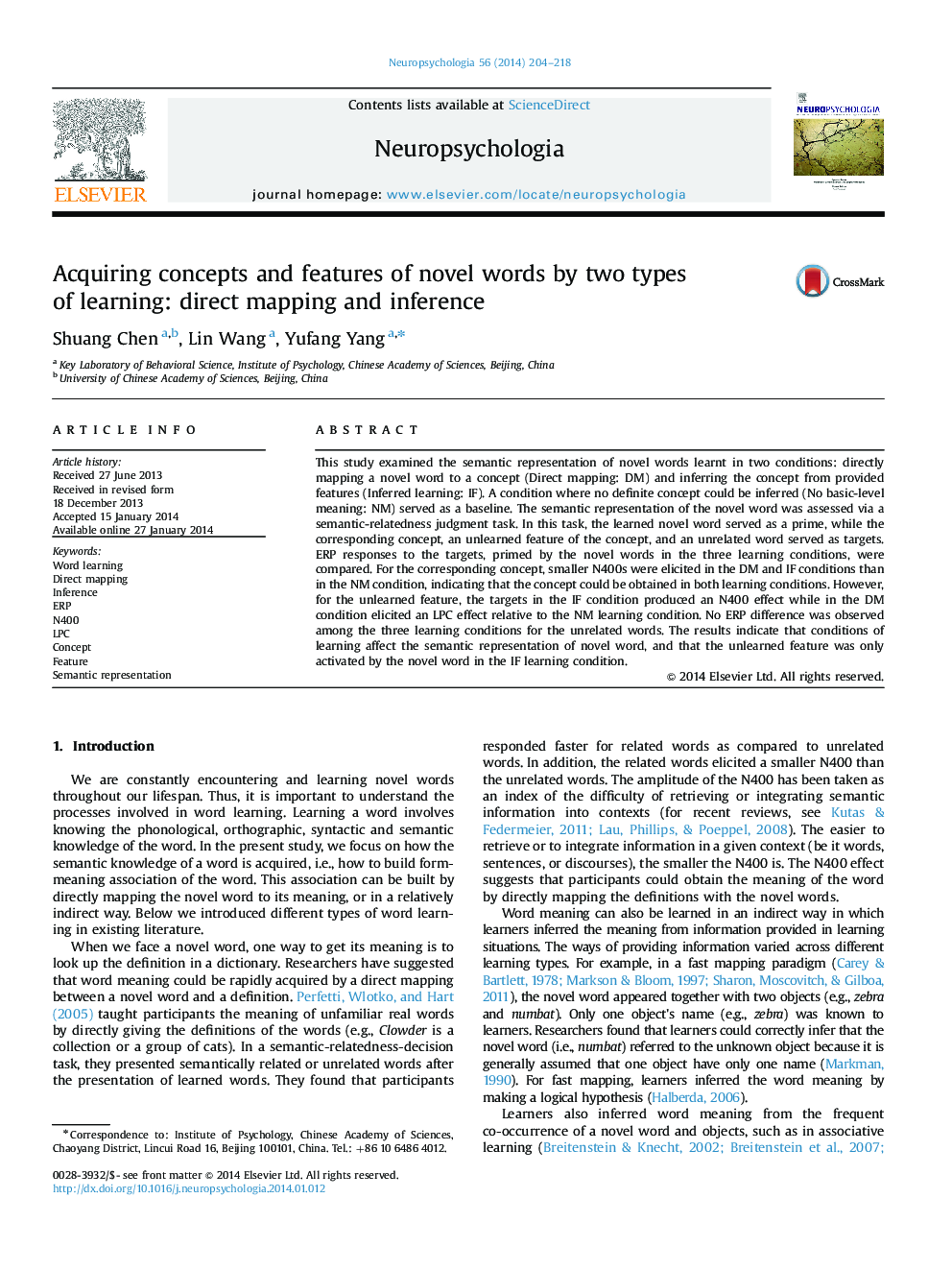| Article ID | Journal | Published Year | Pages | File Type |
|---|---|---|---|---|
| 7321595 | Neuropsychologia | 2014 | 15 Pages |
Abstract
This study examined the semantic representation of novel words learnt in two conditions: directly mapping a novel word to a concept (Direct mapping: DM) and inferring the concept from provided features (Inferred learning: IF). A condition where no definite concept could be inferred (No basic-level meaning: NM) served as a baseline. The semantic representation of the novel word was assessed via a semantic-relatedness judgment task. In this task, the learned novel word served as a prime, while the corresponding concept, an unlearned feature of the concept, and an unrelated word served as targets. ERP responses to the targets, primed by the novel words in the three learning conditions, were compared. For the corresponding concept, smaller N400s were elicited in the DM and IF conditions than in the NM condition, indicating that the concept could be obtained in both learning conditions. However, for the unlearned feature, the targets in the IF condition produced an N400 effect while in the DM condition elicited an LPC effect relative to the NM learning condition. No ERP difference was observed among the three learning conditions for the unrelated words. The results indicate that conditions of learning affect the semantic representation of novel word, and that the unlearned feature was only activated by the novel word in the IF learning condition.
Related Topics
Life Sciences
Neuroscience
Behavioral Neuroscience
Authors
Shuang Chen, Lin Wang, Yufang Yang,
